Tag: Lawmakers
-
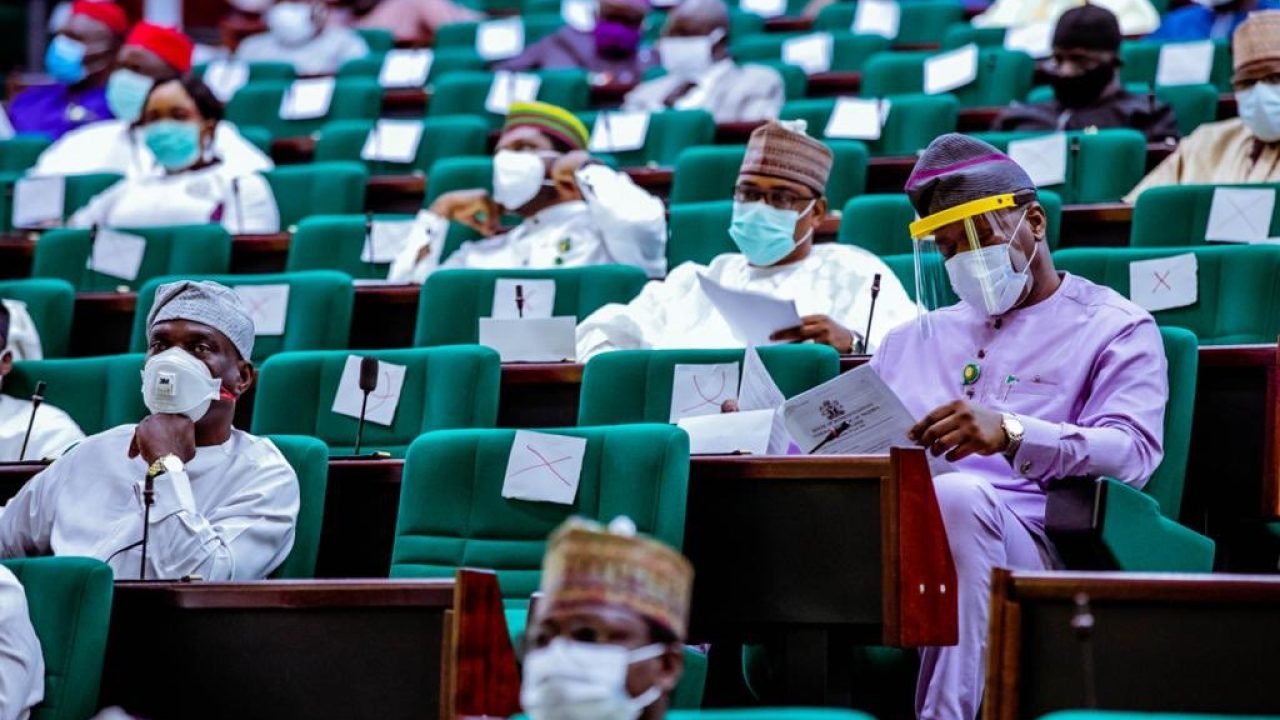
COVID-19 scare in NASS: Lawmakers contemplate sitting once a week as three reps lose wives
By Emman OvuakporieThere’s palpable fear in the National Assembly as three lawmakers’ wives died during Christmas break due to complications from COVID-19.TheNewsGuru.com, TNG reliably gathered that after the death of the wives of the three lawmakers, there were moves to start meeting once in a week instead of the usual thrice a week.On Wednesday, the Speaker of the House of Representatives, Femi Gbajabiamila had arrived one hour forty five minutes late and immediately after reading his welcome speech, the house went into an executive session which lasted about one hour.Details of the session could not be obtained but TNG gathered that one of the issues discussed is not unconnected to the ravaging COVID-19.Sitting once a week definitely will slow down legislative business. -
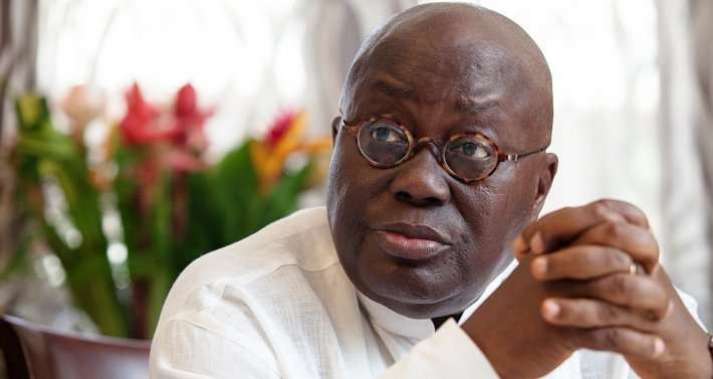
15 Ghanaian lawmakers test positive for COVID-19
Ghana’s parliament will restrict its sessions to twice a week after 15 lawmakers and dozens of legislative staff tested positive for coronavirus, the house speaker said on Thursday.
Ghana’s President Nana Akufo-Addo on Sunday reimposed a ban on social gatherings as the number of Covid-19 cases spiralled in the West African nation.
“Out of those who submitted themselves for the test in parliament, 15 MPs tested positive to the virus. All the 15 have been contacted and advised to self-isolate,” parliament speaker Alban Bagbin said.
He said 56 staffers had also tested positive, forcing him to decide the parliament would only sit on Tuesdays and Thursdays in a measure to control the spread.
Schools reopened in Ghana in January after a 10-month closure, but Akufo-Addo said a return to stricter measures was required because of surging cases.
The new measures came as the average daily rates of infection rose to 700, compared to 200 two weeks ago.
Land and sea borders have been closed since March, while beaches, night clubs, cinemas, and pubs continue to be shut.
Last month Ghanaian soldiers were forced to intervene in parliament to quell a clash between opposing parties in chaotic scenes during the vote for the speaker.
The new parliament is split down the middle between the two main parties, posing the risk of political gridlock.
Akufo-Addo narrowly won re-election in a December 7 vote for the legislature and head of state.
-
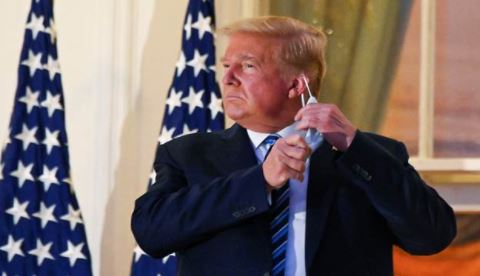
Impeachment trial: Lawmakers write ex-president Trump to appear before Senate
Democratic lawmakers leading the impeachment case against Donald Trump on Thursday requested the former president to testify in his trial for allegedly inciting insurrection in the attack on the US Capitol last month.
“I write to invite you to provide testimony under oath, either before or during the Senate impeachment trial, concerning your conduct on January 6, 2021,” chief impeachment manager Jamie Raskin wrote in a letter to Trump, ahead of the February 9 opening of the trial.
Raskin made the request after Trump’s lawyers filed a pre-trial brief denying the allegations that he encouraged the violent assault by his supporters on the US Congress, which left five people dead.
“You have thus attempted to put critical facts at issue, notwithstanding the clear and overwhelming evidence of your constitutional offense,” Raskin said.
Trump will go on trial in the Senate for the second time in a year beginning next week.
Raskin proposed that Trump provide testimony, and face cross-examination on it, between February 8 and February 11, “at a mutually convenient time and place.”
Raskin said Trump had little excuse to avoid testifying, saying he could no long claim that he was too busy overseeing the country, as was the White House position when he was still president.
“We therefore anticipate your availability to testify.”
If Trump, who now lives in his Florida Mar-a-Lago resort, declines to testify, Raskin warned, the impeachment prosecutors could cite that as evidence supporting his guilt.
Raskin gave Trump until 5 pm Friday to respond to the letter.
-
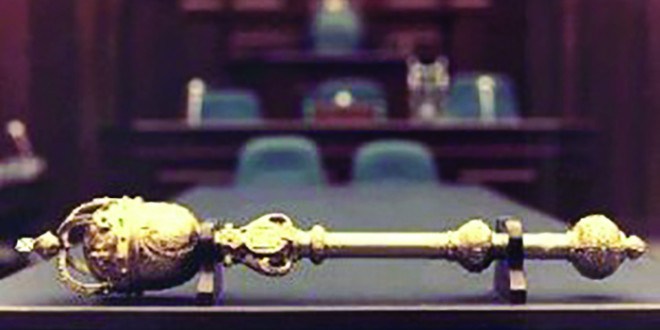
Anambra lawmakers, workers test positive for COVID-19, Assembly shut
The Anambra House of Assembly on Wednesday shut the assembly complex for three weeks after some lawmakers and members of staff tested positive for COVID-19.
The assembly invited the state COVID-19 team on January 19 to conduct compulsory test on members and workers.
The measure followed the reported spike in the number of cases of the pandemic in the state.
The Speaker, Mr Uche Okafor, adjourned the house after a resolution for a break was reached during an emergency plenary.
Okafor said: “The COVID-19 team in the Ministry of Health came last Thursday to take samples of lawmakers and staff members.
“Unfortunately, when the results came out, some were negative but many were positive.“As an institution, we need to lead by example, hence we have decided that the assembly complex be shut for three weeks.
“This is to allow the ministry to do contact tracing of those found to be positive for the virus.”
The speaker said that it was expected that the complex, including the offices and surrounding, along with the houses of those who tested positive, would be fumigated.
“There will be no plenary or committee work and we appeal that those who need to go on isolation should please do so,” he said.
Also at plenary, the house screened and confirmed 21 persons nominated by Gov. Willie Obiano for appointment as Local Government Transition Committee Chairmen.The house approved a three-month tenure for the committee, subject to renewal or fresh appointments by the governor.
-
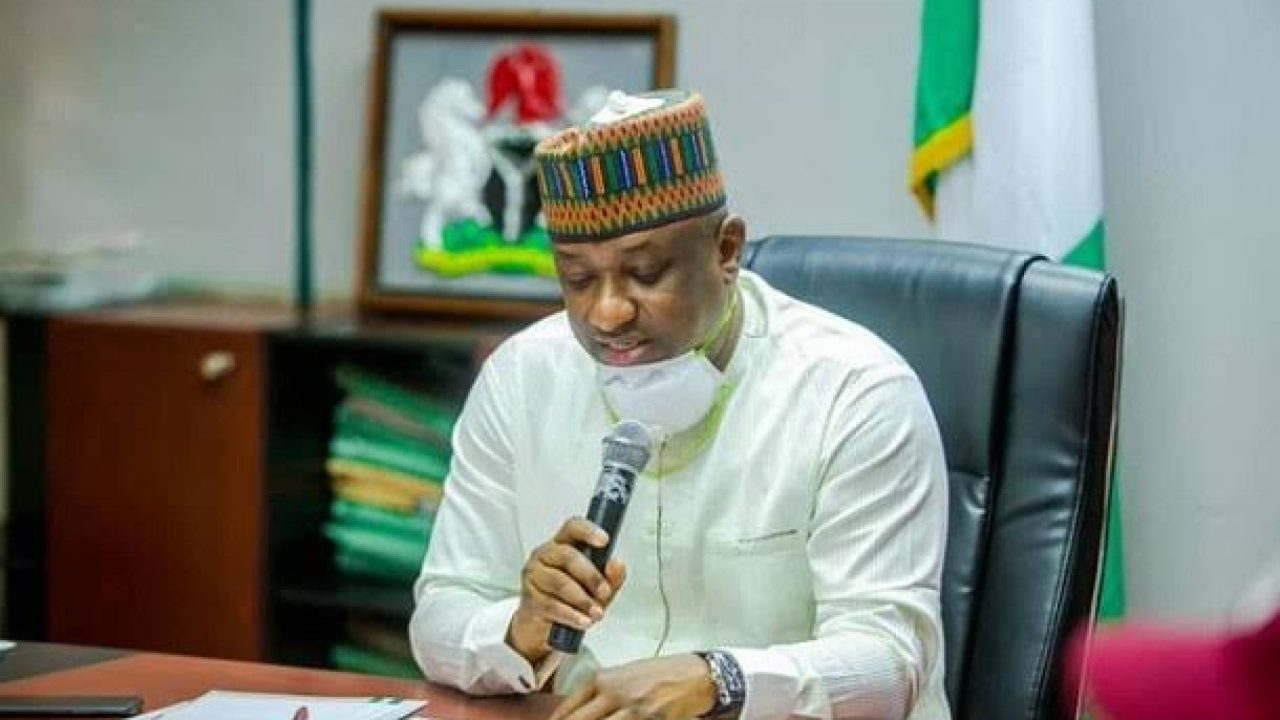
Why lawmakers couldn’t stop commencement of FG’s 774,000 jobs scheme – Keyamo
The Minister of State for Labour and Employment, Festus Keyamo, has said that members of the House of Representatives have no powers to halt the Federal Government’s Public Works Programme.
According to him, only the president can halt the 774,000 jobs scheme which commenced on Tuesday.
“They were urging Mr President, (look at the resolution, they cannot actually mandate) – to see whether they could halt commencement of the programme, but Mr President had actually directed that we commence the programme. It is only Mr President that can actually say that we should stop implementation of the programme, so on the directive of Mr President, we have actually commenced the programme,” Keyamo said on a monitored Channels Television programme.
The House of Representatives had last month passed a resolution mandating the minister to stay action on the planned implementation of the scheme.
The reps had insisted that the programme will not be implemented until a comprehensive list of beneficiaries from the Nigerian directorate of employment is made available.
But despite the hesitation by both chambers of the National Assembly, the programme has commenced across the country.
Under the scheme, 774,000 people are expected to be recruited by the Federal Government, with the sum of N52 billion, earmarked in the 2020 budget.
1,000 persons are to be employed from each of the 774 Local Government Areas in the country, for the programme which is said to be a post-COVID-19 poverty alleviation initiative, approved by President Muhammadu Buhari.
No hike in electricity tariff
Meanwhile,the Minister also explained that has been no increment in electricity tariff. According to him, what was done was to adjust certain bands and to ensure that certain persons who are supposed to be on some bands, are not wrongly put on some other bands.
“What we agreed to do was to freeze certain bands (we have band A,B,C,D). In the interim, what we did was to adjust certain bands and to ensure that certain persons who were supposed to be on some bands, are not wrongly put on some other bands but there has not been any increase in tariffs,” he said.
This is contrary to a statement by NERC issued earlier on Tuesday admitting that the rates for service bands A, B, C, D, and E have been “adjusted” by N2 to N4 per kilowatt-hour (KWH).
According to the agency, the adjustment is in compliance with the provisions of the Electric Power Sector Reform (ESPR) Act and Nigeria’s tariff methodology for biannual minor review.
It also noted that it was aimed at reflecting the partial impact of inflation and movement in forex.
But Keyamo who is the chairman of the sub-committee mandated to go round the country to interact with stakeholders and the discos to find a cost-effective tariff that Nigerians can pay, maintained that there has been no increase in tariff.
“We are still in the process of carrying out our assignment, we have not finished and when I saw the story this morning, I consulted members of the team and they said it is not correct. There has been no increase in tariff,” he said on Tuesday.
-

Police arrest suspected kidnapper of Oyo lawmaker’s sister
The Oyo State Police Command has arrested a suspected kidnapper of a lawmaker’s sister, Jumoke Babalola.
In a statement issued on Friday by the Police Public Relations Officer, Fadeyi Olugbenga, 35-year-old Babalola was abducted by armed men while returning from her shop by unknown armed men.
Following the abduction, the police spokesman said the Anti-Kidnapping Squad of the Command swung into action.
“One Jumoke Babalola Oludele ‘f’ age 35 yrs that was kidnapped while returning from her shop by an unknown armed man, one suspect arrested after the anti-kidnapping squad of the Oyo Police Command swung into action,” the statement partly read.
“The suspect is currently being quizzed to obtain useful information. The effort intensified to rescue the hostage and also to arrest the culprits. Further development shall unfold soonest, please.”
-
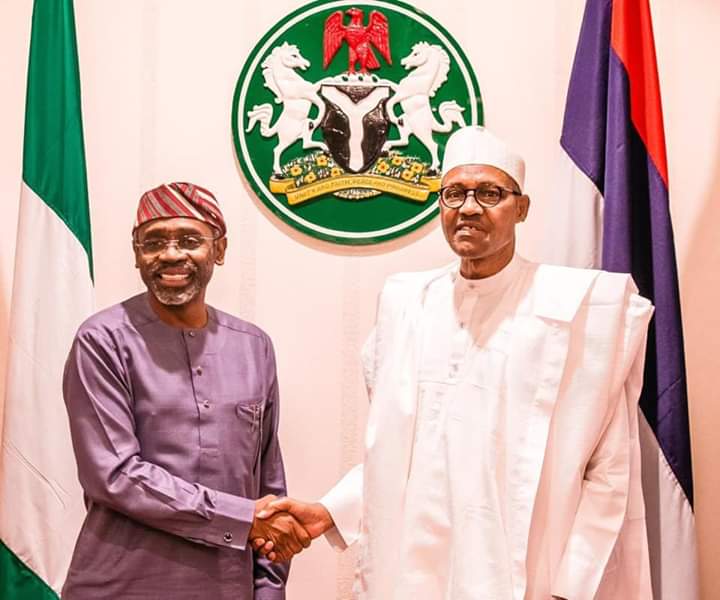
Insecurity: Gbajabiamila, lawmakers wait in vain as Buhari shuns invitation
President Muhammadu Buhari on Thursday failed to honour the invitation by the House of Representatives to address them on the security situation in the country.
Recall that the House in a resolution on 1 December invited Buhari to address them on the true state of the security situation in the country, in the wake of the killings of 78 rice farmers by Boko Haram.
The invitation was delivered to the President by Speaker Femi Gbajabiamila and other leaders.
Buhari at the meeting agreed to address the House.
Few days after, the President’s Personal Assistant on Social Media, Lauretta Onochie announced on 7 December that the President will address a joint session of the National Assembly today.
But at the commencement of plenary on Thursday, there was no sight of President Buhari.
Reps Solomon Bob from Rivers State raised a point of order over the President’s no-show.
He asked the Speaker Femi Gbajabiamila to update the House.
In response, Gbajabiamila said the House will wait for official communication from the President.
TheNewsGuru.com, TNG reports that the President’s refusal to show up may have been because of the advisory by Justice Minister and Attorney General Abubakar Malami.
He issued a statement on Wednesday, saying the National Assembly has no right to invite Buhari.
-
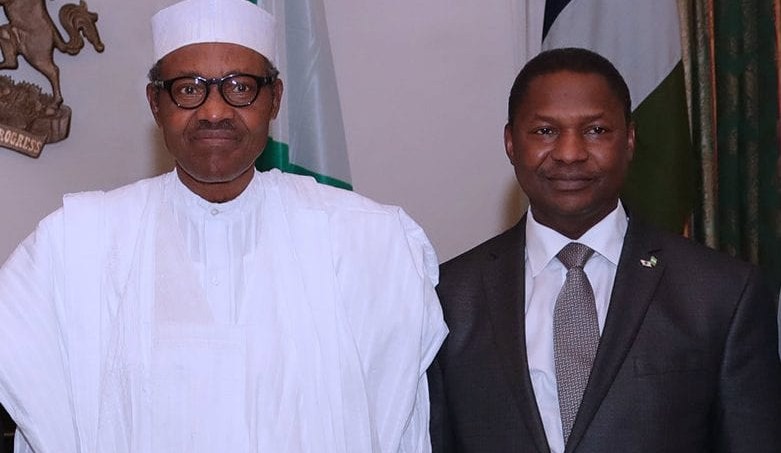
Insecurity: Why Buhari won’t honour lawmakers’ summon tomorrow – Malami
…Insists president winning war against terror
Attorney General of the Federation (AGF) and Minister of Justice, Abubakar Malami has faulted the request by the National Assembly that President Muhammadu Buhari briefs it on the growing security challenge in the country and Federal Government’s efforts at containing it.
TheNewsGuru.com, TNG reports that the Femi Gbajabiamila led House of Representatives had last week summoned the president over the incessant killings and attacks by Boko Haram terrorists particularly in Borno State.
Malami, who argued that Buhari has recorded tremendous success, said that the President cannot be compelled to reveal the nation’s security strategies or comment publicly on the operations of the nation’s armed forces.
He contended that the legislators acted outside their constitutional powers when they purported to summon the President to speak publicly on issues bordering on national security and operations of the armed forces.
The AGF’s spokesman, Dr. Umar Gwandu, quoted him, in a statement on Wednesday as saying: “Mr. President has enjoyed Constitutional privileges attached to the office of the President including exclusivity and confidentiality investiture in security operational matters, which remains sacrosanct.
“The National Assembly has no Constitutional Power to envisage or contemplate a situation where the President would be summoned by the National Assembly on the operational use of the Armed Forces.
“The right of the President to engage the National Assembly and appear before it is inherently discretionary in the President and not at the behest of the National Assembly.
“The management and control of the security sector is exclusively vested in the President by Section 218 (1) of the Constitution as the Commander in Chief of the Armed Forces including the power to determine the operational use of the Armed Forces.
“An invitation that seeks to put the operational use of the armed forces to a public interrogation is indeed taking the constitutional rights of law-making beyond bounds.
“As the Commander in Chief, the President has exclusivity on security and has confidentiality over security. These powers and rights he does not share.
“So, by summoning the President on national security operational matters, the House of Representative operated outside constitutional bounds.
“President’s exclusivity of constitutional confidentiality investiture within the context of the constitution remains sacrosanct.
“President Muhamamdu Buhari of the Federal Republic of Nigeria has recorded tremendous success in containing the hitherto incessant bombing, colossal killings, wanton destruction of lives and property that bedeviled the country before attaining the helm of affairs of the country in 2015.
“The confidentiality of strategies employed by the President as the Commander-in-Chief of the Armed Forces of the Federal Republic of Nigeria is not open for public exposure in view of security implications in probable undermining of the war against terror.
“The fact that President Muhammadu Buhari was instrumental to the reclaiming of over 14 Local Governments previously controlled by the Boko Haram in North-East is an open secret; the strategies for such achievement are not open for public expose.”
Malami, who condoled with the bereaved and sympathized with the victims of the associated insecurity in the country, contended that national security is not about publicity and the nation’s security architecture cannot be exposed for the sake of getting publicity.
-

Lawmakers demand better salaries for doctors, others
The House of Representatives, on Tuesday, condemned the mass exodus of workers in the health sector, calling on the Federal Government to discourage the migration of health workers to other countries.
The House specifically urged the Ministry of Labour, Employment, and Productivity to “review the salary, allowances, and welfare of Nigerian medical practitioners.”
The House also called on the Ministry of Labour, Employment and Productivity to “consider expanding the size of the medical practitioner in the country to create employment for the unemployed ones and develop a functional strategy that will attract diaspora medical personnel to work at various teaching hospitals.”
Also, the lawmakers instructed the ministry to ensure employment of Nigerian medical practitioners, while mandating the House Committee on Health Care Services to “call other relevant stakeholders for an interactive session in other to proffer a lasting solution to brain drain of medical personnel from Nigeria.”
These are the prayers of a motion moved by a member, Ganiyu Johnson, titled ‘Need to Address the Increasing Rate of Brain Drain of Medical Personnel from Nigeria,’ which was unanimously adopted by the House.
Moving the motion, Johnson said, “The House notes that Nigeria has one of the leading stocks of human resources for health in Africa but has failed to meet the health attention of its over 200 million people as a result of brain drain.
“The House also notes that the Nigeria Medical Association, in 2016, gave the statistics of about 5,000 medical workers leaving the country annually to developed countries, making Nigeria the highest source of foreign-born medical practitioners abroad.
“The House is aware from studies that Nigeria has over 90,000 qualified medical doctors practising abroad and, in fact, an average of 50 doctors who had their primary medical education in Nigeria are said to be registering for practice every week in the United Kingdom, United States of America, Canada and the oil-rich countries.
“The House is also aware that Saudi Arabia’s health ministry visits Nigeria every year to conduct screening for intending medical practitioner, both in Abuja and Lagos, to take them to their country for employment, and Nigerian doctors are struggling for visa at the British High Commission to travel to their country after they have even passed their compulsory Professional Linguistic Assessment Board exams at the British Council.”
Johnson itemized some factors responsible for the development to include inadequate infrastructure, poor human resources planning, management practices and structures, unsatisfactory working conditions characterised by heavy workloads and other factors such as lack of professional autonomy, poor supervision and support, long working hours, unsafe workplaces, inadequate career structures, poor working conditions and poor compensation packages.
He added, “The exodus of medical practitioners in Nigeria has in particular contributed to acute shortages of specialised and experienced health professionals in the country and if not curbed, it will be tough for Nigeria to tackle poverty because health is actually the wealth.”
-
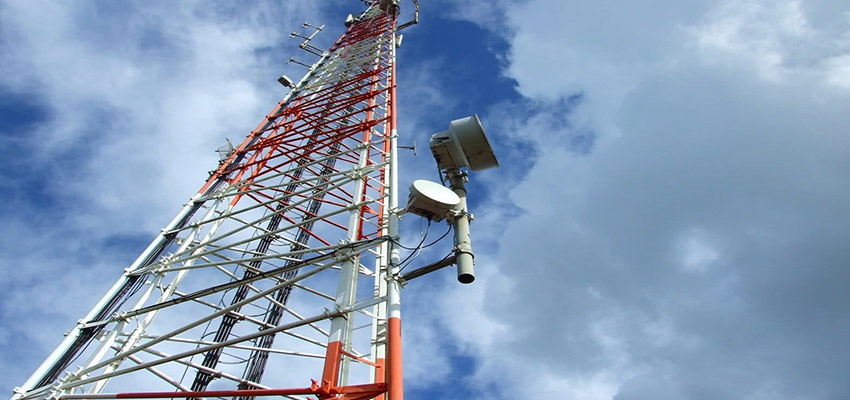
Telecoms and security of lives: Time for desperate measures – Okoh Aihe
By Okoh Aihe
When we got into the first part of Kogi State, the young man behind me in the bus, who had engaged his colleagues in animated discussions all the way from Benin, tried to find out our location. Told that we were in Okene, he became a psychotic wreck and flew into kindergarten gibberish to the surprise of those who could hear him.
Two weeks ago, he tried to control his emotions, his father was kidnapped on that road and those criminals from the hottest part of hell didn’t get in touch with the family until after three days. They demanded for N100m but the family went into a bruising, protracted negotiation and eventually shelled out N10m. The cheek of it all is that the bandits drove all the way to Abuja to collect the money and returned to base before releasing the old man. He still had their contacts in his phone!
Another two weeks, a bus belonging to a popular transporter was taken on the same road with all the passengers. One of the passengers told his friend that the kidnappers would make contacts with their phone, put it on speaker so that everybody could hear the conversation or if you want to be more appropriate, negotiations. This went on for days. For those whose people were not responding well, they killed in very gruesome way. Two of the passengers were killed before their very eyes, to drive the fear home that what was happening was macabre reality and not make believe. He, an artisan, struggling to eke a manageable life, parted with N1.5m. Apart from the weapons, their phones were their most useful tools.
So, you could imagine how elevated I felt last week when the House of Representatives told the Ministry of Communications and Digital Economy and the regulatory agency, Nigerian Communications Commission (NCC) to do something about SIM Registration in order to stem the wave of crime in the country. When you look around you and you see despondency, of people nearly giving up on their country, of a National Assembly – the Upper and Lower Chambers, very docile and distant, leaving the people to flagellate themselves about the wrong choices they have made, one should at least cheer one tiny hope of action, even if that action is accidental.
How can there be so much death in the land and the National Assembly does not know the country is careening into a season of frightening overtime and that something should be done very urgently?
At last the speaker of the House, Honourable Femi Gbajabiamila spoke and I threw up my hands in momentary celebration. Unfortunately, that fleeting celebration has little grip in reality because nothing will happen except we flip the page and begin to do things differently. The reason being that history does not lie. If you look at history long enough, you can begin to see missteps and begin to think of corrective measures. This could be one of the reasons those enjoying the transiency of power abrogated history from the school system so that the evils of our leaders past and present could be interred with them and never studied to achieve a better future.
But for some of us who enjoy the pleasures of history nobody can remove it from our brains with a magic wand. So, dear readers, let’s take a little journey into a much needed recall. The Regulations on Registration of Telephone Subscribers was made by the Nigerian Communications Commission on November 3, 2011. It was gazetted on November 11 of the same year. The Regulations made it mandatory for every phone line in Nigeria to be registered and also stating penalties for contravention.
In Part 111, under Registration the Regulations state as follow: (1) Every Licensee shall register a subscribers’ information as specified under sub-regulation (2) of this regulation. (2) From the commencement of these Regulations, Licensees, Independent Registration Agents and Subscriber Registration Solution Providers shall in accordance with registration specifications and at no cost to the Commission or the subscriber capture, register and transmit to the Central Database the – (a) biometrics and other personal information of subscribers who request for the activation of the licensee’s subscription medium; and (b) in the case of a corporate body or other juristic person, the biometrics and other personal information of the authorized representative of the corporate body or other juristic person and name, address and where applicable, the registration number of the juristic person issued by the Corporate Affairs Commission.
On Activation of new subscriptions, the Regulations state under Part 111, Regulation 12 (1) Upon the commencement of these Regulations, licensees shall only provide new subscribers with subscription mediums enabled for limited access to their network services and such limited access shall last for the duration of the activation window.
The Regulations were very forward looking and tried to tie down every opportunity for malfeasance. No operator in the telecommunications industry would claim not to be aware of the details, especially when they have very robust regulatory departments.
March 28, 2011, Executive Vice Chairman (EVC) of the NCC, Dr Eugene Juwah launched the Registration programme with lots of excitement and optimism for the following reasons: “First being that this nation has been waiting for the day when all the SIM Cards in use in the country are registered, and the identity of the owner of every line is known. This is done in other parts of the world and Nigeria wishes to be like other progressive nations of the world.
“Another significance of this is the achievement of a Central Data base for mobile phone users in Nigeria. Today, therefore marks a major step taken by the NCC, to bequeath to our dear nation, an important tool, a pool of data that will assist other agencies of government, especially the security agencies, and the National Identity Management Commission (NIMC), etc. in carrying out their jobs in the national interest.”
I must admit that the registration exercise has had its own successes but vicissitudes would be a more appropriate word. This was largely illustrated by the fine placed on MTN for contravening the regulations, failing to disconnect 5.1 incompletely registered SIM cards in October 2015. Initial fine was N1.04tn but negotiations dragged up to June 10, 2016, when all the parties agreed to a reduced fine of N330bn to be paid in several tranches.
Even as bludgeoning as that fine may have been, has it solved the SIM registration problems? Not at all. A source within the regulatory Commission told this writer the problems persist, adding that all the relevant stakeholders including the security arms should get on the table to take very drastic decisions instead of chasing shadows.
There is still a lot of dubious cross-registration especially by agents appointed by operators making it impossible for the registration process to be trimmed into acceptability. Those agents are incentivized on commission thus putting them under pressure to take short cuts that are hurting the purity of the process. The source also noted that a number of people in networth positions in government and businesses hardly go personally to register their SIMs, instead they send their reps by way of exploiting such a window provided in the Regulations. This explains in a very bizarre way why it may be possible for the regulator to say there are no unregistered SIM Cards in Nigeria. Instead the SIMs are inappropriately registered!
My source was not also happy that some people arrested during enforcement exercises by the regulator were frivolously prosecuted by the Police and let off the hook to the consternation of the regulator. There has to be more commitment and seriousness from the Police, the source appealed.
I want to suggest that the security situation in the country demands desperate measures by relevant stakeholders in order to stop the needless waste of lives. I am desperately requesting that Regulation 8 should immediately be modified to it make easy for security personnel to have access to subscriber’s data on the networks especially concerning criminal acts. What is in the Regulation at the moment is nightmare which makes life easy for the wicked.
Okoh Aihe writes from Abuja